
Gilgamesh
Gilgamesh focuses on the eponymous hero of the worlds oldest epic and his legendary adventures. However, it also goes further and examines the significance of the storys Ancient Near Eastern context, and what it tells us about notions of kingship, animality, and the natures of mortality and immortality.
In this volume, Louise M. Pryke provides a unique perspective to consider many foundational aspects of Mesopotamian life, such as the significance of love and family, the conceptualisation of life and death, and the role of religious observance. The final chapter assesses the powerful influence of Gilgamesh on later works of ancient literature, from the Hebrew Bible, to the Odyssey, to The Tales of the Arabian Nights, and his reception through to the modern era.
Gilgamesh is an invaluable tool for anyone seeking to understand this fascinating figure, and more broadly, the relevance of Near Eastern myth in the classical world and beyond.
Louise M. Pryke is a Lecturer for the Languages and Literature of Ancient Israel at Macquarie University, Australia, and a Research Associate at the University of Sydney. Gilgamesh is her second volume in the Gods and Heroes of the Ancient World series. Her first book for the series, Ishtar, explored the worlds first goddess of love.
Gods and Heroes of the Ancient World
Series editor: Susan Deacy, University of Roehampton, London, UK
Uniformly excellent... The amount of information compactly conveyed is exceptional. (Times Higher Education)
Deacy is to be credited with developing the concept and format for an engaging and informative series. (Bryn Mawr Classical Review)
Routledge is pleased to present an exciting series, Gods and Heroes of the Ancient World. These figures from antiquity are embedded in our culture, many functioning as the source of creative inspiration for poets, novelists, artists, composers and filmmakers. Concerned with their multifaceted aspects within the world of ancient paganism and how and why these figures continue to fascinate, the books provide a route into understanding Greek and Roman polytheism in the 21st century.
These concise and comprehensive guides provide a thorough understanding of each figure, offering the latest in critical research from the leading scholars in the field in an accessible and approachable form, making them ideal for undergraduates in Classics and related disciplines.
Each volume includes illustrations, time charts, family trees and maps where appropriate.
Artemis
Stephanie Lynn Budin
Herakles
Emma Stafford
Aphrodite
Monica S. Cyrino
Apollo
Fritz Graf
Perseus
Daniel Ogden
Athena
Susan Deacy
Zeus
Ken Dowden
Prometheus
Carol Dougherty
Medea
Emma Griffiths
Dionysos
Richard Seaford
Oedipus
Lowell Edmunds
Ishtar
Louise M. Pryke
Achilles
Marta Gonzlez Gonzlez
Hermes
Arlene Allan
Gilgamesh
Louise M. Pryke
https://www.routledge.com/classicalstudies/series/GHAW
 Gilgamesh
Gilgamesh 
Louise M. Pryke

First published 2019
by Routledge
2 Park Square, Milton Park, Abingdon, Oxon OX14 4RN
and by Routledge
52 Vanderbilt Avenue, New York, NY 10017
Routledge is an imprint of the Taylor & Francis Group, an informa business
2019 Louise M. Pryke
The right of Louise M. Pryke to be identified as author of this work has been asserted by her in accordance with sections 77 and 78 of the Copyright, Designs and Patents Act 1988.
All rights reserved. No part of this book may be reprinted or reproduced or utilised in any form or by any electronic, mechanical, or other means, now known or hereafter invented, including photocopying and recording, or in any information storage or retrieval system, without permission in writing from the publishers.
Trademark notice: Product or corporate names may be trademarks or registered trademarks, and are used only for identification and explanation without intent to infringe.
British Library Cataloguing-in-Publication Data
A catalogue record for this book is available from the British Library
Library of Congress Cataloging-in-Publication Data
Names: Pryke, Louise M., author.
Title: Gilgamesh / Louise M. Pryke.
Description: Abingdon, Oxon ; New York, NY : Routledge, 2019. |
Series: Gods and heroes of the ancient world | Includes bibliographical references and index.
Identifiers: LCCN 2018054362 (print) | LCCN 2018060068 (ebook) | ISBN 9781315716343 (ebook) | ISBN 9781317506713 (web pdf) | ISBN 9781317506706 (epub) | ISBN 9781317506690 (mobi/kindle) | ISBN 9781138860698 (hardback : alk. paper) | ISBN 9781315716343 (ebk.)
Subjects: LCSH: Gilgamesh. | Gilgamesh (Legendary character) | Epic poetry, Assyro-BabylonianHistory and criticism. | Heroes in literature. | Civilization, Assyro-Babylonian. | IraqCivilizationTo 634.
Classification: LCC PJ3771.G6 (ebook) | LCC PJ3771.G6 P79 2019 (print) | DDC 892/.1dc23
LC record available at https://lccn.loc.gov/2018054362
ISBN: 978-1-138-86069-8 (hbk)
ISBN: 978-1-315-71634-3 (ebk)
Typeset in Utopia
by Newgen Publishing UK

Contents


It is proper for a person who is beginning any serious discourse and task to begin first with the gods (Demosthenes, Epistula 1.1)
The gods and heroes of antiquity are part of our culture. Many function as sources of creative inspiration for poets, novelists, artists, composers and designers. Greek tragedys ongoing appeal has ensured a continued familiarity with its protagonists. Even the world of management has used ancient gods as representatives of different styles: Zeus and the club culture for example and Apollo and the role culture: see C. Handy, The Gods of Management: Who They Are, How They Work andWhyThey Fail, London 1978.
This series is concerned with how and why these figures continue to fascinate. But it has another aim, too, namely to explore their strangeness. The familiarity of the subjects risks observing a vast difference between their modern and ancient meanings and purposes. With certain exceptions, people today do not worship them, yet to the peoples of the ancient world they were venerated as part of pantheon made up of literally hundreds of divine powers. These range from major deities, each of whom might, themselves, be worshipped in specialised guises, to heroestypically regarded as deceased individuals associated with local communitiesto other, though overlapping, forms of beings such as daimones and nymphs. The landscape was dotted with sanctuaries, while natural features such as mountains, trees and rivers could be thought to be inhabited by religious beings. Studying these beings involves finding strategies to comprehend a world where everything could be, in the words of Thales, full of gods.


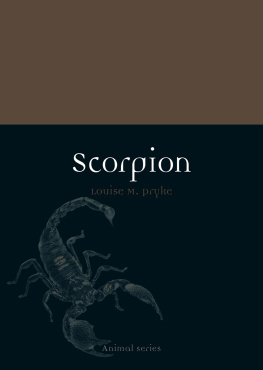
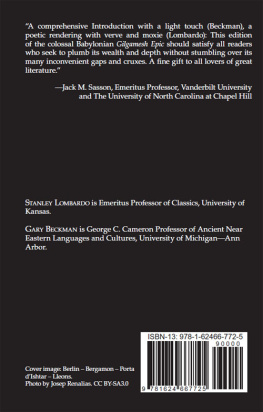
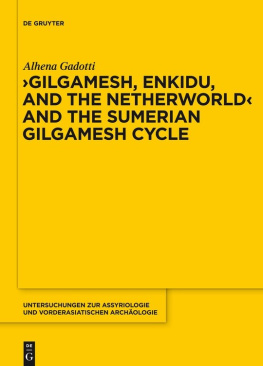
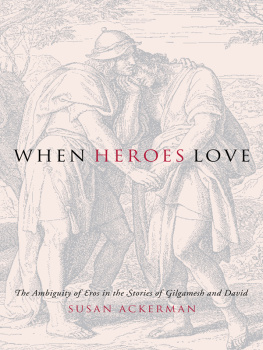
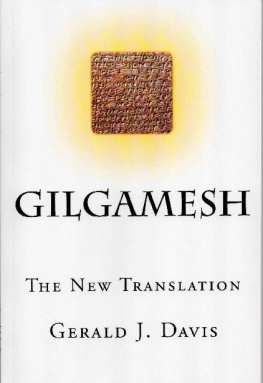
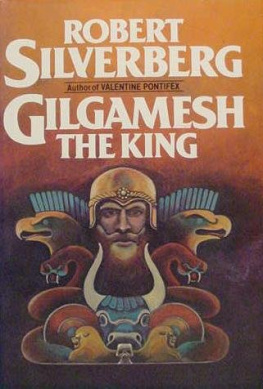


 Gilgamesh
Gilgamesh 